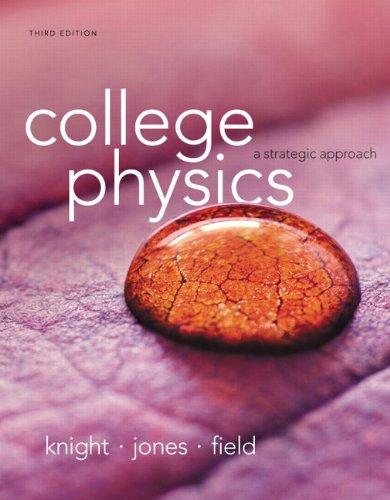I A ball of mass (m) oscillates on a spring with spring constant (k=200 mathrm{~N} / mathrm{m}).
Question:
I A ball of mass \(m\) oscillates on a spring with spring constant \(k=200 \mathrm{~N} / \mathrm{m}\). The ball's position is \(x=(0.350 \mathrm{~m}) \cos (15.0 t)\), with \(t\) measured in seconds.
a. What is the amplitude of the ball's motion?
A. \(0.175 \mathrm{~m}\)
\(\begin{array}{lll}\text { B. } 0.350 \mathrm{~m} & \text { C. } 0.700 \mathrm{~m}\end{array}\)
D. \(7.50 \mathrm{~m}\)
E. \(15.0 \mathrm{~m}\)
b. What is the frequency of the ball's motion?
A. \(0.35 \mathrm{~Hz}\)
B. \(2.39 \mathrm{~Hz}\)
C. \(5.44 \mathrm{~Hz}\)
D. \(6.28 \mathrm{~Hz}\)
E. \(15.0 \mathrm{~Hz}\)
What is the value of the mass \(m\) ?
A. \(0.45 \mathrm{~kg}\)
B. \(0.89 \mathrm{~kg}\)
C. \(1.54 \mathrm{~kg}\)
D. \(3.76 \mathrm{~kg}\)
E. \(6.33 \mathrm{~kg}\)
d. What is the total mechanical energy of the oscillator?
A. \(1.65 \mathrm{~J}\)
B. \(3.28 \mathrm{~J}\)
C. \(6.73 \mathrm{~J}\)
D. \(10.1 \mathrm{~J}\)
E. \(12.2 \mathrm{~J}\)
e. What is the ball's maximum speed?
A. \(0.35 \mathrm{~m} / \mathrm{s}\)
B. \(1.76 \mathrm{~m} / \mathrm{s} \quad\) C. \(2.60 \mathrm{~m} / \mathrm{s}\)
D. \(3.88 \mathrm{~m} / \mathrm{s}\)
E. \(5.25 \mathrm{~m} / \mathrm{s}\)
Step by Step Answer:

College Physics A Strategic Approach
ISBN: 9780321907240
3rd Edition
Authors: Randall D. Knight, Brian Jones, Stuart Field





